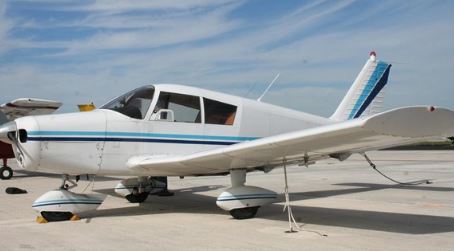
The Piper Cherokee 160-180
Explore the compelling story of the Piper Cherokee 160-180, a distinguished aircraft from one of the world's renowned manufacturers. Thus, uncover its defining features, notable milestones, and why it continues to make a mark in the world of aviation.
HISTORY
The Piper Cherokee 160-180 is an aircraft model designed and produced by the esteemed Piper Aircraft, Inc., a titan in the aviation industry. Contrarily, the Cherokee series was introduced in 1960 as a lower cost alternative, designed for flight training, air taxi services, and personal use.
Basically, the 160-180 Cherokee, unveiled in 1962, was a pivotal moment for the series, establishing itself as a favored choice for pilots due to its significant improvements in power and performance. Undeniably, this variant came to symbolize the Cherokee's reputation as a reliable, easy-to-fly, and economical aircraft.
DESIGN
The Piper Cherokee 160-180 is a low-wing monoplane, known for its simplicity and durability. Overall its wingspan measures 30 feet, and the aircraft stretches 23.3 feet in length. Consequently, it has a maximum takeoff weight of around 2,400 pounds and can comfortably seat up to four occupants, perfect for a small family or group.
Surprisingly, the distinguishing feature of the Cherokee series is its “Hershey Bar” wing, a rectangular constant-chord wing. Therefore, the 160-180 variant maintains this feature, contributing to the aircraft's reputation for stability and easy handling.
PERFORMANCE
With a top speed of approximately 140 knots, the Cherokee 160-180 proves more than adequate for the majority of general aviation pilots. Subsequently, it can reach an altitude of 14,600 feet, and its cruising range extends to about 690 miles, making it an excellent choice for cross-country flights.
One of the key selling points of the Cherokee 160-180 is its fuel efficiency. Therefore, the aircraft is economical, consuming roughly 8-10 gallons per hour at cruising speed, offering excellent value for both flight schools and private owners.
TECHNOLOGY
The Cherokee 160-180, while maintaining a classic design, does not skimp on modern technology. In like manner, it typically comes with an array of avionics, including navigation and communication systems.
Moreover, the aircraft incorporates safety-enhancing technologies. Its low-wing design ensures better glide performance and visibility in the case of an emergency, and it is often equipped with modern emergency locator transmitters.
VARIANTS
While this post focuses on the Cherokee 160-180, it's part of a larger family, each with its unique features and uses. The series ranges from the initial Cherokee 140, designed for flight training, to the powerful Cherokee 235, tailored for longer flights and heavier loads.
OPERATORS
The Piper Cherokee 160-180 has found a home in countless flight schools, air taxi services, and private hangars across the globe. Its combination of affordability, reliability, and easy handling has made it a popular choice among a wide variety of operators.
Conclusion
In summary, the Piper Cherokee 160-180 stands as an icon in aviation history. It represents a perfect blend of economy, performance, and easy handling. Its legacy continues to inspire, and its footprint is indelible in the world of flight. Whether you're a seasoned pilot, aviation enthusiast, or just fascinated by the world of flight, the Cherokee 160-180 is a marvel worth exploring.
Be sure to share this post with other flight enthusiasts and keep the spirit of aviation alive!
Specifications and Performance Data
| Characteristic | Specification |
|---|---|
| Wingspan | 30 ft |
| Length | 23.3 ft |
| Max Takeoff Weight | 2,400 lbs |
| Seating Capacity | 4 |
| Top Speed | 140 knots |
| Altitude | 14,600 ft |
| Range | 690 miles |
| Fuel Consumption (Cruise) | 8-10 gallons/hr |
This article uses material from various web resources and Wikipedia article, released under the Creative Commons Attribution-Share-Alike License 3.0.

